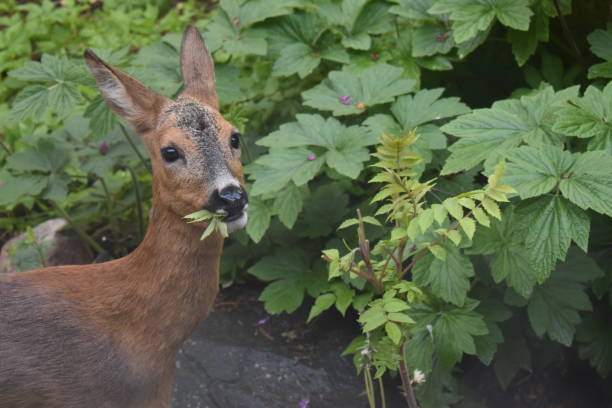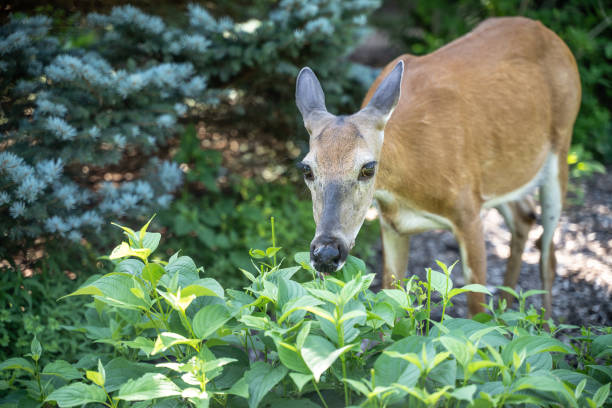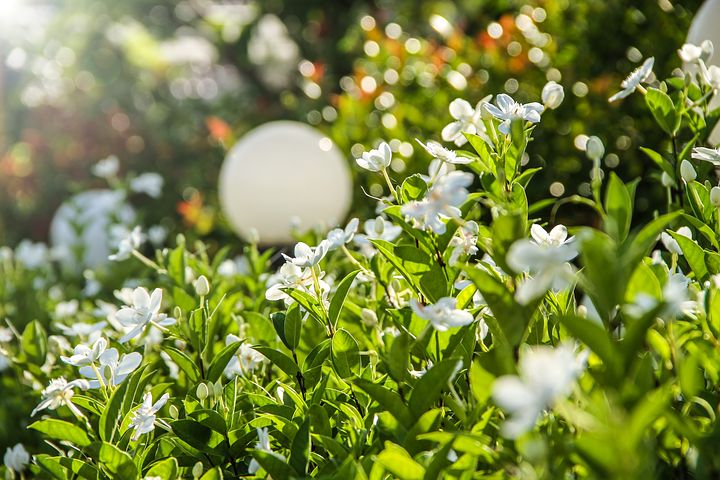Deer Eating Gardenia Plants
Deer are a common problem for gardeners. They can damage or even kill plants by eating them. Some plants are more deer-resistant than others. Gardenias are not deer-resistant and can be damaged or killed by deer.
There are a few things you can do to help protect your gardenia plants from deer. One is to plant them in a location where they are not easy for deer to get to. You can also use deer fencing or deer repellent to help keep deer away from your plants.
If your gardenia plants are already damaged by deer, there is not much you can do to save them. The best thing to do is to remove the damaged plants and replace them with plants that are deer-resistant.
Table of Contents
How Can I Prevent Deer from Eating My Gardenia Plants?
There are a few things that you can do to help prevent deer from eating your gardenia plants:

Install a fence around your gardenia plants
Installing a fence around your gardenia plants is a great way to protect them from animals and pests. A fence will also help to keep the plants warm and protected from the wind. Make sure to choose a fence that is tall enough to deter animals and pests from getting into the garden.
Spray your gardenia plants with a deer repellent
If you have gardenia plants, you may want to spray them with a deer repellent. Deer love to eat the leaves and flowers of gardenia plants, and if you don’t want them to eat your plants, you should spray them with a deer repellent. There are many different deer repellents on the market, so you should be able to find one that works well for your gardenia plants.
Plant deer-resistant plants around your gardenia plants
There are many deer-resistant plants that can be planted around gardenia plants to help protect them from being eaten. Some good options include lavender, rosemary, thyme, and mint. These plants are all fragrant, which will also help to keep deer away from your gardenia plants.

What Types of Plants are Deer-Resistant?
There are many types of plants that are deer-resistant. Some plants have strong scents that deer don’t like, while others are simply too prickly or tough for deer to eat. There are also plants that deer don’t like to eat because they are poisonous. If you are looking for a plant that is deer-resistant, be sure to do your research to find out what kinds of plants are safe for your area.
Here’s the list of plants that are deer resistant
- Yarrow
- Lavender
- Thyme
- Geranium
- Mint
- Sage
- Rosemary
What Happens if Deer Eat a Gardenia Plant?
Deer are browsers, which means they eat a variety of plants. This includes gardenias, which can be damaged or killed if deer consume too many of them. If you are seeing deer eating your gardenia plants, you can try using a deer repellent to keep them away. There are many different types of deer repellents available, so be sure to find one that works best for your situation. You can also try installing a fence around your garden to keep the deer out.
What are the Symptoms of Deer Damage?
Deer damage can include eating plants, rubbing their antlers on trees, and trampling vegetation. The most common symptoms of deer damage are plants that have been eaten down to the ground or have been completely uprooted. If you are seeing any of these symptoms, it is best to call a professional.

What Can I Do if My Garden is Being Eaten By Deer?
There are a few things that you can do to try and protect your garden from deer. One option is to install fencing around the area. This will prevent the deer from coming into your garden, as well as keep them out of other areas that they may not be welcome. You can also use anti-deer devices or repellents to keep them away
What is the best way to get deer to eat gardenias?
There is no one-size-fits-all answer to this question, as the best way to get deer to eat gardenias will vary depending on the situation and location. However, some tips that may help include:
- Plant gardenias in areas where deer are already frequenting, such as near a feeder or in an area where they can see them from a distance.
- Try planting gardenias in areas that are attractive to deer but not too tempting. This means choosing plants with variegated leaves or flowers that are different colors or sizes.
- Make sure the gardenias you plant are well watered and fertilized regularly.
- Provide water dishes for your deer so they can drink from them when they’re nearby the gardenias.
